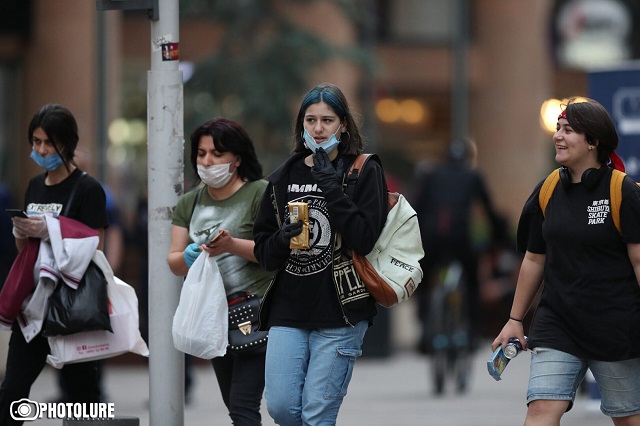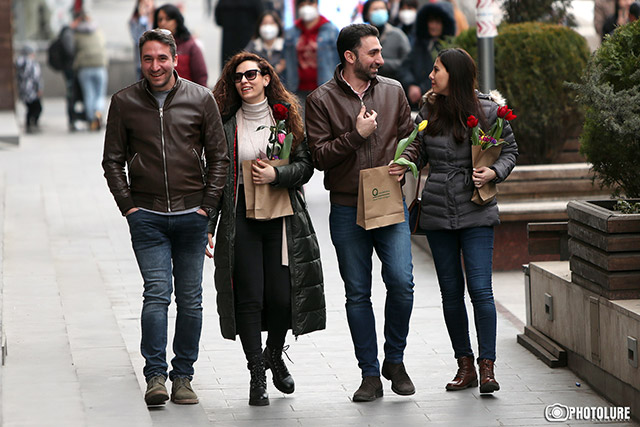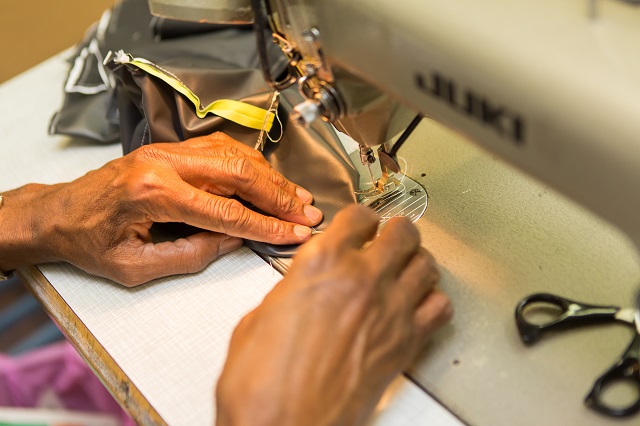The coronavirus pandemic has shown us that we need to build back a greener and fairer society. That means, for example, changing the fashion and textile industry, which produces vast amounts of waste each year. This sector’s largely female workforce have been hard hit by the crisis, but the EU is empowering these women to turn today’s environmental challenges into opportunities.
In today’s world, more and more people are asking before they buy: How environmentally-friendly is this product?
The transition away from waste-producing ‘fast fashion’ has been making headway over recent years, especially in relation to climate action. Furthermore, the coronavirus crisis has spurred a second wave of sustainability consciousness with gender equality at its heart.
Gender and crisis
In the textile and fashion industry, where women make up the majority of the skilled workforce, lockdown measures have led to many losing their jobs. When factories temporarily closed in India due to the national lockdown, many female workers had to travel the length of the country to return to their families. Once home, they faced a range of competing pressures, including childcare and domestic work, as well as uncertainty about resuming their jobs or finding new work.
Read also
Female empowerment in fashion
The EU has teamed up with UN Women to establish ‘WeEmpowerAsia’, a programme that focuses on increasing female participation in business and leadership in 7 Asian countries – China, India, Indonesia, Malaysia, the Philippines, Thailand and Vietnam.
One of their leading projects is called Industry Disruptor. It’s a unique mentorship opportunity where Asian female entrepreneurs working in the textile and fashion industry engage with experts on sustainability challenges, and learn how to become more resilient against future threats.
Undeterred by the pandemic, the Industry Disruptor team kicked off in summer 2020, inviting 80 Indian businesswomen to participate in an online training course. And due to its success, there are plans to roll out the project in the other 6 Asian countries mentioned above.
Meet Rameshwari Kaul and Shruthi Swaminathan

Rameshwari is the co-founder of Cotton Rack, a socially responsible clothing brand with handmade fabrics at its core. She’s based in Jaipur, the largest city in Rajasthan, Northern India. Shruthi is the founder of the ELMACK clothing company.
Rameshwari (left) and Shruthi (right) © Vinayak Sharma, 2014 & 2019 © Gayu Lewis, 2019
Both women participated in the Industry Disruptor online training course where, together with experts, they discussed solutions for product lifespan, pollution and the future of supply chains – among other pressing environmental challenges. Thanks to the EU-backed project, both Rameshwari and Shruthi became part of a global network committed to social and environmental change.
“The project has been a great place to share knowledge and experience. I look forward to staying connected and interacting with you all in the many years to come,” says Shruthi.
The project provided an outlet for both women to share their innovative ideas for the future of fashion. It also granted them the opportunity to meet other like-minded Indian entrepreneurs – some of whom have already paired up to develop their own ideas on how to tackle environmental challenges.
“The Industry Disruptor programme has shone a light on the issues that bother ventures like ours. It has been an honour to be part of a community where everyone is warm and there to help,” says Rameshwari.
And the project didn’t stop there. Entrepreneurs and mentors met with industry partners, like fashion powerhouse H&M and German retailer Tchibo, which sells clothes and other products as well as coffee, for a 5-day ‘virtual bootcamp’. The participants brainstormed how to put the women’s solutions into practice and joined business development workshops.

Katherin Kirschenmann is the co-founder of the DO School, a German-based organisation that helps businesses, entrepreneurs and young talents.
Katherin Kirschenmann © The DO School, 2020
The Do School has been collaborating with UN Women to implement the Industry Disruptor programme. For Katherin, now is the perfect time to support start-ups and SMEs, many of which are struggling as a result of coronavirus. The Industry Disruptor project teaches businesswomen to build up their resilience by adapting their offers and supply chains, or by moving their companies online.
“The need to build a more sustainable fashion industry has not changed. If anything, new issues have become more prevalent due to the impacts of coronavirus,” says Katherin.
EU support for female empowerment
The coronavirus crisis has hit women hard, and its negative impact will reverberate for many years. This is why EU support for female empowerment projects like Industry Disruptor is particularly important. Not only does it attempt to bridge the gender gap, but it also turns environmental challenges into opportunities – both essential components for the post-coronavirus economic recovery. We need to ensure that women have the resources they need to get through this difficult period and realise their full potential in Europe and all over the world.
European Union





























































